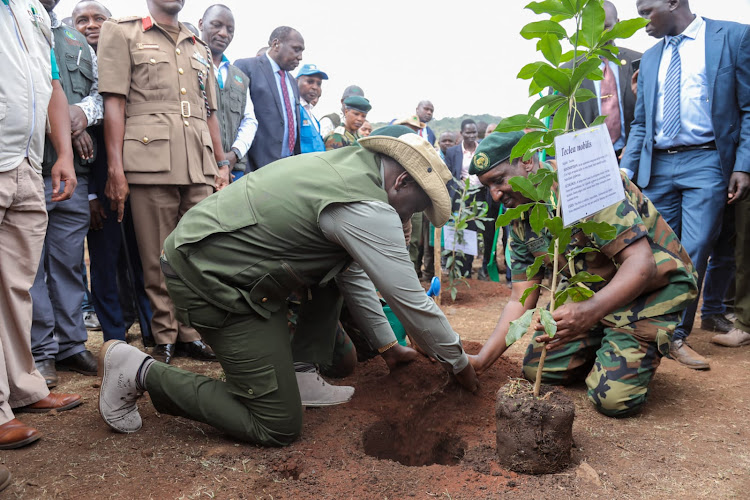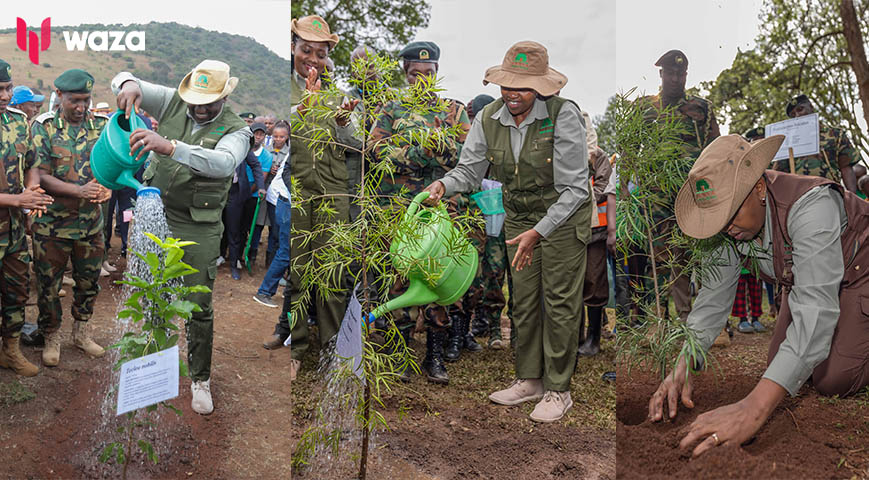The First Lady's Landscape and Ecosystem Restoration Strategy and Implementation Plan, aimed at planting 500 million trees, have been formally introduced by Mama Rachel Ruto.
Implementing this plan will expedite the President's goal of planting 15 billion trees by 2032.
The plan for implementation takes into account women, youth, and students. Incorporating agroforestry, promoting green jobs and nature-based enterprises, advocating for green financing to fill funding gaps in restoration efforts, and inspiring women and youth to engage in the green and circular economies are all part of it.
Approximately 3 million trees have been planted in forests and educational institutions as part of the strategy's testing and validation process. Furthermore, The First Lady has designated 500 acres, or 200 hectares, for restoration at Kakamega Forest in Shikusa Block.

Did you read this?
With technical assistance from the Kenya Forest Service and the Office of the First Lady, this adoption set the precedent for comparable adoptions by spouses of county governors and members of parliament throughout the nation.
Mama Rachel Ruto called on all parties who share her views to present a unified front in favor of Kenya's tree-planting initiatives.
Developing relationships with groups and individuals that share our values increases our influence and creates a common vision for a sustainable future.
By working together, we can increase our influence nationally, make the most of our resources, take advantage of our partners' advantages, and start a chain reaction to help us achieve our audacious target of planting 500 million trees.
Soipan Tuya, the Ministry of Environment, Climate Change, and Forestry's cabinet secretary praised the initiative for its role in reducing greenhouse gas (GHG) emissions and controlling global temperatures.

With a target of having 30% of the 15 billion trees as fruit trees, the Kenya Kwanza Government's Bottom-Up Economic Transformation Agenda (BETA) is placing even more emphasis on the growth of fruit trees and woodlots on farmlands and in establishments like schools, colleges, and universities. These initiatives can improve nutritional and food security, generate employment, and promote social-economic development.
Inger Andersen, Executive Director, United Nations Environmental Programme (UNEP); Gitonga Mugambi, Principal Secretary, State Department for Forestry; Alex Lemarkoko, Chief Conservator of Forests, Kenya Forest Service; and Leila Benali, President of UNEA, were among the other guests in attendance.









